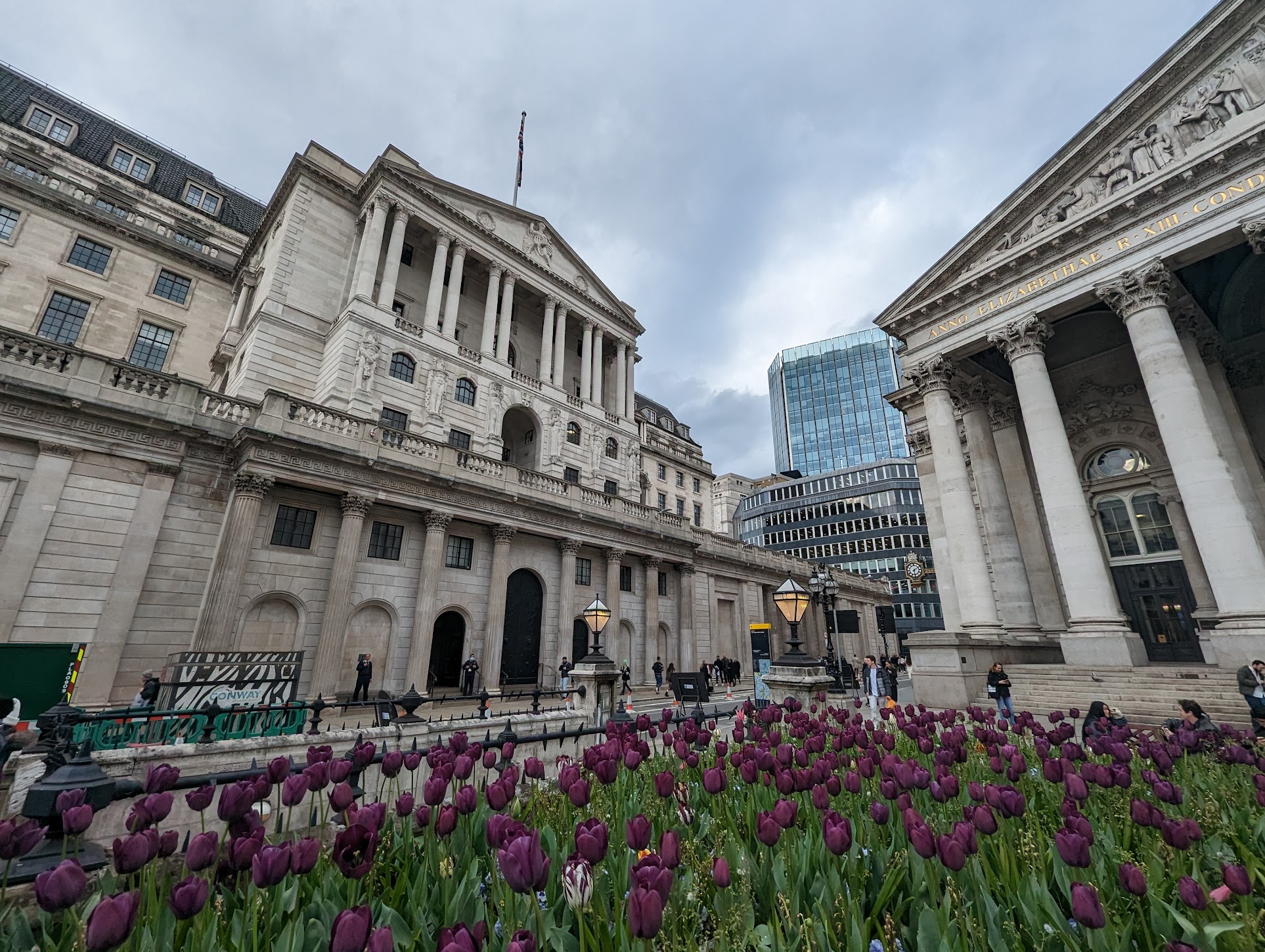Bank of England maintains base rate at 5.25%

(Credit: George Iordanov-Nalbantov)
The Bank of England (BoE) has voted to maintain the base interest rate at 5.25% for the second consecutive time, signalling a continued tight monetary stance into the foreseeable future against a backdrop of persistent inflation and subdued economic growth.
Despite the grim economic outlook, the central bank insists that it is premature to consider rate reductions.
BoE Governor Andrew Bailey emphasised that the Monetary Policy Committee (MPC) is carefully evaluating the need for future rate increases, saying it is “too early to be thinking about rate cuts”. The MPC’s decision to keep rates unchanged was by a majority vote of six to three, with dissenters calling for a modest hike.
The BoE’s projections suggest that the UK is on track to meet its goal of halving inflation by year’s end, yet inflation is not expected to fall below the 2% target until late 2025. Current inflation trends indicate a significant decrease to below 5% by October, down from the 10.7% observed in the final quarter of 2022. However, with consumer price inflation at 6.7% and the highest interest rates since the financial crisis, the BoE faces the challenge of reining in inflation without exacerbating economic stagnation.
Financial markets, seemingly anticipating the decision by the BoE, saw a rise with the FTSE 100 and FTSE 250 indices increasing by 1.1% and 3.1%, respectively, reflecting investor confidence that a global peak in rate hikes may have been reached.
The central bank’s forecasts are cautious – the expectation is that economic growth will flatline in the short term, with a mere 0.1% expansion at the end of the year and a risk of contraction in 2024, which coincides with an expected election year. These projections consider the ongoing effects of the 14 rate increases since December 2021 and the withdrawal of previous fiscal stimulus measures.
Chairman of Cornerstone Group International, David Hannah, said: “It is disappointing to see the Bank of England’s announcement that interest rates will remain at 5.25% at a time when the UK property market is at risk of freefalling into a crash.
“Developers aren’t building at the moment; prospective first-time buyers are holding off from entering the market and we’re seeing a mass exodus of landlords – largely caused by sky-high interest rates. Not to mention the plight faced by those who’ve come to the end of longer-term fixes to find their repayments skyrocketing to unmanageable levels.”
Mr Hannah continued: “I hope that we will see the BoE cut interest rates by half a basis point at their next meeting – this would catalyse activity in the housing market and allow for somewhat of a soft landing rather than a potential crash.
“Additionally, easing the interest rates might bolster consumer confidence, encouraging investment and spending in various other sectors, stimulating economic activity at a time when the UK most needs it.”








